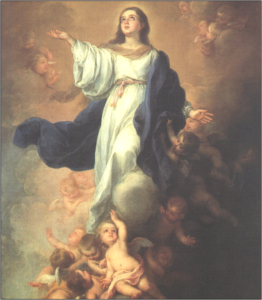Scripture readings for today's reflection can be found at Feast of the Holy Innocents, martyrs | USCCB
Today we commemorate the Feast of Holy Innocents, those innocent children who were killed because of the insecurity and jealously of King Herod. Herrod hears about the newborn King of the Jews and feels threatened.
We can only imagine the fear and grief of the parents of these innocent children as they watched helplessly as their children were slaughtered. On one hand, it’s shocking to know that God permitted this. On the other hand, on a level of deep faith, we must strive to understand the witness that these innocent children gave.
In effect, Herod was the first person to reject Jesus as his Lord and Savior. Herod felt threatened by someone who, because He's God, could have brought him peace and happiness. Instead, Herod lashes out and goes on to try to eliminate what he considers a threat to him being King. Herod responds with violence!!
As we reflect on King Herod's reaction to Jesus being born, let us remember that we too are called to embrace and accept Jesus as our Newborn King. Jesus is Lord and Savior. Jesus came into the world to bring us salvation and forgiveness of our sins. We should not fear Jesus coming into our lives but rather invite Him into our hearts and lives to lead us towards heaven.
Let us also pray for those children who die as a result of abortion or suffer as a result of child abuse. These are the Holy Innocents of today. We need to pray for those most innocent and vulnerable of people in our society: the unborn and those children suffering at the hands of abusive adults. We need to be proactive in finding ways of protecting these Holy Innocents.
Let us this day pray the following prayer: "Lord, I surrender all hurt, pain and confusion to You. I unite myself, this day, with the sorrow of those who lost these little children and I trust that their lives, as they reign now in Heaven with You, are a sign for me of things to come. Your birth into our world was the greatest sign that You are our Savior and that You can turn all things into good. Jesus, I entrust my life to You and know that You will right every wrong. Jesus, I trust in You."
























